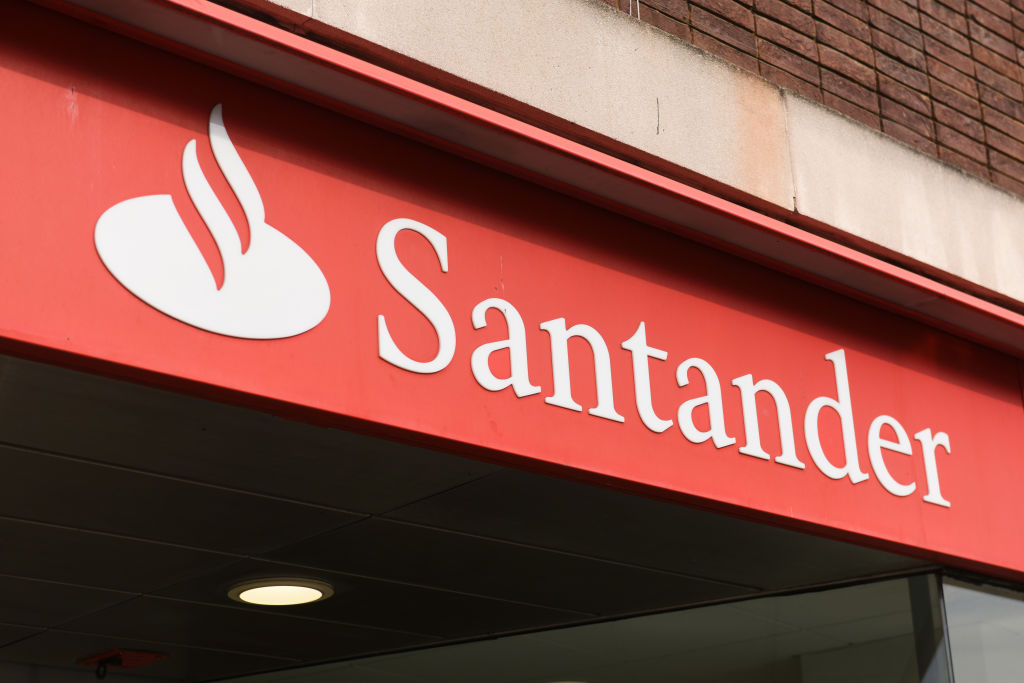How to find a financial adviser you can trust
Getting the right help for your money problems can be as tricky as finding a good plumber. Sarah Moore explains how to find an IFA on a sensible budget.
Get the latest financial news, insights and expert analysis from our award-winning MoneyWeek team, to help you understand what really matters when it comes to your finances.
You are now subscribed
Your newsletter sign-up was successful
Want to add more newsletters?

Twice daily
MoneyWeek
Get the latest financial news, insights and expert analysis from our award-winning MoneyWeek team, to help you understand what really matters when it comes to your finances.

Four times a week
Look After My Bills
Sign up to our free money-saving newsletter, filled with the latest news and expert advice to help you find the best tips and deals for managing your bills. Start saving today!

Getting the right help for your money problems can be as tricky as finding a good plumber. Sarah Moore explains how to find advice on a sensible budget.
If you're looking for help in managing your money, it can be difficult to know where to start. The financial sections of the newspapers regularly carry warnings about those who realise too late that they've paid astronomical fees to advisers or, worse still, that they have been conned by unscrupulous predators. Others resist asking for advice at all, preferring to do it all themselves. We have a lot of sympathy with that view ideally we should all strive for a level of familiarity with investing and personal finance that enables us to manage our own money with confidence. However, even if the relationship proves only to be a short one, consulting a financial adviser can be a good way of learning about options you may not have considered, sense-checking your own views, and putting a financial plan together. And if organisation and paperwork are not your strong point, an adviser can also help you to make sure that you stick to your plan.
But how do you find an adviser? It's not quite as straightforward as finding a good plumber or builder (if you can even call that straightforward). And in many cases, you won't know if they've done a good job or not until they've been managing your affairs for some time. So you need a good grasp of what you are looking for, and of how the world of financial advice works, before you start your hunt.
MoneyWeek
Subscribe to MoneyWeek today and get your first six magazine issues absolutely FREE

Sign up to Money Morning
Don't miss the latest investment and personal finances news, market analysis, plus money-saving tips with our free twice-daily newsletter
Don't miss the latest investment and personal finances news, market analysis, plus money-saving tips with our free twice-daily newsletter
What kind of advice do you need?
Depending on the type of service that they provide a financial adviser might be known as a pension adviser, financial planner, or if they sell products such as mortgages or investments a broker. But to act in this capacity, they must all be regulated by the Financial Conduct Authority (FCA). Before you pick an adviser, you need to know what you're looking for, so that you go to the person most qualified to help you, and only pay for the advice you need. If you are looking for assistance with a specific financial product, then a broker might be your first port of call. Advisers who sell the likes of mortgages, or life, critical-illness and income-protection insurance policies, are generally paid on commission by the product provider.
Anyone advising on mortgages or equity release requires specific qualifications. There are essentially three types of mortgage adviser: those who are restricted to one lender; those who offer mortgages from a limited list of providers; and those who can advise by looking at the whole market. Be aware that even "whole-of-market" advisers can't sell you every product on the market, as some mortgages can only be sold directly by the lender to the customer (although they can and should tell you that these products exist). Of course, it is entirely possible to do your own research and pick your own mortgage product this is called an execution-only application. Doing so means taking full responsibility for your decision, notes the Money Advice Service, which means you have fewer options if the product ends up being unsuitable for you but you would also hope that an adviser wouldn't recommend the wrong product for you.
If you are looking for life insurance, critical-illness insurance (which pays out should you contract various serious illnesses) or income protection (which pays out a regular income if you are unable to work through accident, sickness or unemployment), and your situation is fairly straightforward, you should be able to pick your own policy without having to pay for advice. However, if your family situation is complicated, or you have long-term health problems, it can be a good idea to speak to someone who can help you to find the best cover to meet your needs.
If you need help to pick a general insurance product, such as home or travel insurance, an insurance broker can help you to find the best option, as well as dealing with any claims and making sure you get the best deal when it comes to renew. Again, these are straightforward products to find for most people, but it can help to speak to a broker if your circumstances are unusual perhaps you have health problems and need to find a travel insurance policy that will cover you, for example. Check to see which providers the broker is able to work with, to ensure you're getting the most choice. The British Insurance Brokers' Association offers a "find a broker" service at Biba.org.uk.
How to pick a financial adviser
If you're looking for advice on investing or pensions in particular, and especially if you're looking to transfer a sizeable pension fund, then you'll need what most of us traditionally think of when we think of a financial adviser a specialist who can help you to flesh out your long-term financial goals and to implement your plans in the most tax-efficient way. These advisers will generally be able to help you with many of the individual products noted above as part of the planning process such as changes in your life cover needs at various milestones. Be sure to speak to a few different advisers before choosing one don't just take the first personal recommendation you get from friends or family.
The most important distinction to make is between an independent financial adviser (IFA) and a "restricted" adviser. An IFA can give advice and sell products from any provider. Restricted advisers are limited in the type of product or provider that they can recommend to you. It's almost always best to go with an IFA, so that you have access to the full range of services and providers available.
There are various online adviser directories, such as those published by the Personal Finance Association (a trade body for IFAs), or the Institute of Financial Planning. You might also want to look at websites such as Find an Adviser, Unbiased, and VouchedFor. The Money Advice Service also has a directory of advisers who specialise in retirement-related advice, or you can look at the Society of Later Life Advisers (whose specialities might include equity release and paying for care).
Whatever kind of advice you're looking for, be sure to check that any adviser you are considering is regulated by the FCA, and that they're qualified to advise you on the subject you need help with. Since 2013, advisers have been required to hold a "Level 4 Diploma" qualification, which is deemed equivalent to the first year of a degree-level course. Examples might include the Diploma in Financial Planning (or DipFP). However, many IFAs have higher-level qualifications that allow them to claim Certified Financial Planner status (awarded by the Chartered Institute for Securities and Investment) or Chartered Financial Planner status (awarded by the Chartered Insurance Institute). Each requires that the IFA has several years of practical experience on top of passing a challenging series of exams. The adviser should also have an annual Statement of Professional Standing (SPS), issued by an FCA-accredited body. This shows that they have signed up to a code of ethics, completed a minimum amount of training each year (known as "continuing professional development") and hold the required qualifications for the business that they undertake.
How much should you be paying?
For many years, a majority of IFAs were paid via commission payments on the products they sold. This, of course, hid the true cost of advice from clients and led to serious potential conflicts of interest. This all changed in January 2013 as a result of the FCA's Retail Distribution Review commission payments were banned and now IFAs have to charge directly for the advice they give.
Hourly rates can vary widely from £75 per hour to £350, but the UK average is about £150, according to the Money Advice Service. For a fixed fee for a specified task expect to pay several hundred or even a few thousand pounds, depending on what services you require. A fixed fee should be agreed in advance, and you should ask for and receive written confirmation of what services will be included in the fee.
If you're looking for ongoing advice, the most common arrangement is to pay an annual percentage of the money under management. If you do this, then it's crucial to be aware of the importance of getting good value. For example, if you start with £500,000 and pay 1.82% in fees, then after 20 years of growth at 5.3% a year you will have £972,743, according to data from online wealth manager Netwealth (MoneyWeek's editor-in-chief, Merryn Somerset Webb, sits on the advisory committee here). This looks a decent enough return. But if you had incurred a lower annual fee of 0.6%, you would be left with more than £1.2m after 20 years. This demonstrates just how huge the effect of apparently small fees on your investment fund can be. So be sure to shop around and get a detailed quote (including details of service provided) to enable you to compare IFAs before you make your choice.
Get the latest financial news, insights and expert analysis from our award-winning MoneyWeek team, to help you understand what really matters when it comes to your finances.
Sarah was MoneyWeek's investment editor. She graduated from the University of Southampton with a BA in English and History, before going on to complete a graduate diploma in law at the College of Law in Guildford. She joined MoneyWeek in 2014 and writes on funds, personal finance, pensions and property.
-
 Average UK house price reaches £300,000 for first time, Halifax says
Average UK house price reaches £300,000 for first time, Halifax saysWhile the average house price has topped £300k, regional disparities still remain, Halifax finds.
-
 Barings Emerging Europe trust bounces back from Russia woes
Barings Emerging Europe trust bounces back from Russia woesBarings Emerging Europe trust has added the Middle East and Africa to its mandate, delivering a strong recovery, says Max King
-
 Why pension transfers are so tricky
Why pension transfers are so trickyInvestors could lose out when they do a pension transfer, as the process is fraught with risk and requires advice, says David Prosser
-
 Santander launches best easy access savings rate in 14 years
Santander launches best easy access savings rate in 14 yearsSantander launches market leading easy access savings rate, but you’ll have to act fast if you want to take advantage - we have all the details
-
 Bank of Baroda closes doors to UK retail banking
Bank of Baroda closes doors to UK retail bankingAfter almost 70 years of operating in the UK, one of India’s largest bank is shutting up shop in the UK retail banking market. We explain everything you need to know if you have savings or a current account with Bank of Baroda
-
 The rise and fall of finfluencers as FCA clamps down on poor advice
The rise and fall of finfluencers as FCA clamps down on poor adviceFCA clamps down on ‘finfluencers’ - but will it protect consumers from ‘bad advice’? Kalpana Fitzpatrick looks at the rise and fall of finfluencers
-
 Lloyds, Santander and HSBC hike savings rates
Lloyds, Santander and HSBC hike savings ratesBanks and building societies have been raising their savings rates as the base rate continues to rise. Our round-up of all the savings rates hikes.
-
 FCA: Banks with lowest savings rates to face “robust action”
FCA: Banks with lowest savings rates to face “robust action”The regulator has unveiled a new 14 point plan that will force savings providers to justify low interest rates on easy access savings accounts - will your savings get a boost?
-
 Watchdog summons banks to explain paltry savings rates
Watchdog summons banks to explain paltry savings ratesSavings rates trail mortgage rates - and the financial watchdog has summoned banks to a meeting amid concerns of profiteering.
-
 Consumer Duty: how the rules are changing financial services - and what they mean for you
Consumer Duty: how the rules are changing financial services - and what they mean for youConsumer Duty rules came into force almost a year ago, aiming to put customers’ needs first - but have they made a difference?